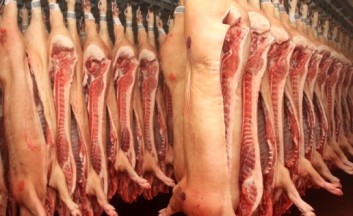Belarus’ VAT regulations might hamper growth in Belarusian exports to Russia
 The situation has not changed
The situation has not changed

Adopted on July 21st, presidential decree No 361 restricted the import of consumer goods and has led to price-hikes on imported goods. In addition, the decree has prevented Belarusian importers from re-exporting some goods and taking advantage of higher demand for foodstuffs on the Russian market.
Before the decree, importers supplying goods to Belarus were obliged to pay VAT on the imported products. The VAT paid at the border was credited to avoid double taxation. The decree has introduced a delay in tax credit by 90 days, meaning that the VAT is paid twice (VAT will be credited only in January 2015).
The government has introduced this measure so as to obtain an interest-free loan from importers for a 90-day period and thus address the budget deficit issue. The decree only concerns the import of goods which will not subsequently be processed, i.e. large industrial enterprises are not subject to this regulation. Importers will add these additional costs to the final price, i.e. the prices on imported goods will rise by at least 10%.
In the past, a certain share of imported goods, mainly foodstuffs, were re-exported. In January – May 2014, Belarus re-exported USD 4.5 mln worth of citrus fruit, and USD 1.4 mln worth of persimmon. Exports of apples totalled USD 43.2 mln (mainly Polish apples).In addition, Russian meat producers have repeatedly complained about Belarus re-exporting European meat as if it was Belarusian.
Today, Belarus has greater opportunities to re-export European foodstuffs to Russia. But she may not be able to benefit from them if current VAT regulations remain unchanged. Firstly, re-export schemes are linked with the transit of goods, and the intermediary cannot afford to freeze 20% of the turnover for each supply. Secondly, Belarus has a ‘raw material’ problem. To date, pig livestock has not been restored following an outbreak of African swine fever, and pork supplies are still banned from several EU countries due to ASF. Belarus’ dairy industry production capacities cannot increase dramatically in order to step up exports to Russia while not creating domestic deficit. Belarus could solve this issue by increasing dairy imports from the EU. However, importers would be prompted either to raise prices to compensate for the double taxation or to abandon imports completely as unprofitable.
Belarus has a good chance of increasing her food exports (re-exports) to Russia. However, unless she reviews her VAT regulations, this opportunity may not materialise, and domestic prices on foodstuffs could go up.
Subscribe to our newsletter




Situation in Belarus
Constitutional referendum: main consequences


 Video
Video
How to count the political prisoners: are the new criteria needed?


 Video
Video
Paternalism In Decline, Belarusian Euroscepticism, And The Influence Of Russia


 Video
Video












